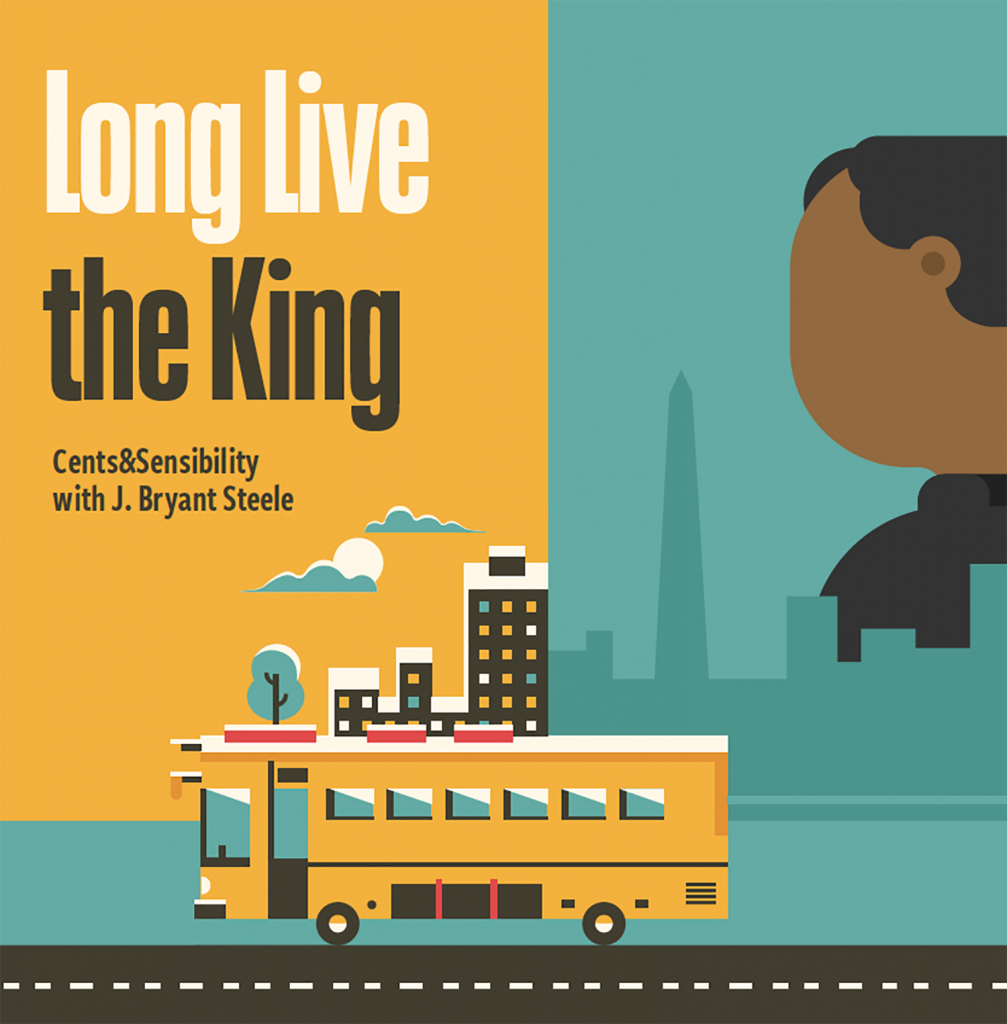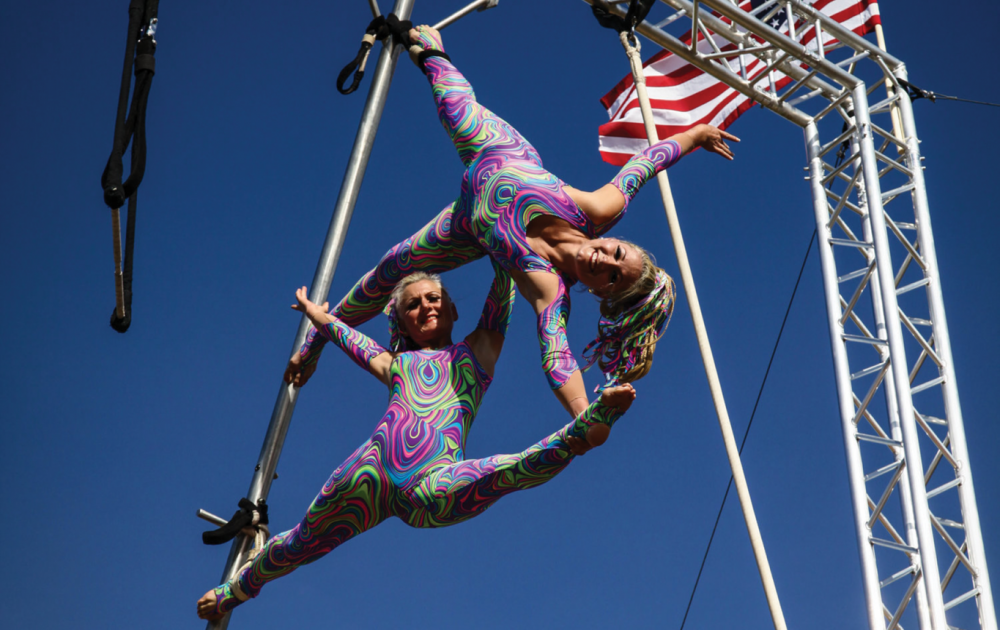
The days leading up to April 4 were filled with tributes to Martin Luther King, Jr., on the 50th anniversary of his assassination. I didn’t try to embellish those words, but I do remember where I was when I heard the news.
I had just turned 16 the day before. My high school band was in Washington, D.C., for the Cherry Blossom Festival. We had been selected to march in that year’s parade. We were an award-winning band, but we were from a small town, so being invited to our nation’s capitol was a big deal.
We had spent the day on guided tours, seeing things we’d only seen in picture books, and we were sitting on the bus waiting to go back to our hotel. A senior class member walked down the aisle and told us that King had been killed. I don’t remember reactions other than gasps,
then silence.
It was stunning news.
We had all been children when President John F. Kennedy had been assassinated, and we had all been watching on TV when his killer, Lee Harvey Oswald, was himself gunned down by Jack Ruby. We had not yet fully processed that recent history of unfathomable violence.
Back at our hotel (the first time some of us had stayed in a hotel) we were drawn to the window by the sights and sounds – fire, flashing lights, breaking glass, sirens, gunfire, shouting. A chaperone came into our room and told us to get away from the window for our safety. We obeyed until he left, then went back to the window for a bird’s eye view of a riot.
The next morning, we were herded onto a bus between two rows of National Guardsmen with bayonets pointed skyward. The next evening, after a long train ride, we were greeted by the most relieved group of parents I’ve ever seen. They were so afraid they’d never see us alive again. I don’t know if any of us told them about watching the riot from our windows.
I wish I could say I was transformed by Dr. King in his lifetime, or at least by the traumatic days after escaping D.C, and watching the news coverage. But it would be a couple of more years before I embraced his messages of racial equality, nonviolence and pacifism.
I was raised perhaps like many of you: that the races should be separated. Yet, we always had blacks in our employ; I was taught to say “sir” and “ma’m” to them. But one day when I was playing in the yard with a boy my age who’d accompanied his father in our employ, my mother called me inside and told me I was not to play with “colored” boys.
I was taught to use the word “colored” instead of a racial epithet, not out of enlightenment but because we were not supposed to talk the way “white trash” talked. Don’t say “ain’t” and do say colored instead of the ugly alternative.
When I did become more enlightened, or progressive, a couple of years after King’s murder, it was matters of race, not curfews or homework, that I fought about with my parents. (Hey, if you’re a teenager and you’re high-minded in picking your fights, that’s one stamp of approval on your passport to heaven. At least I hope so.)
What I can say, if belatedly, is that Martin Luther King reformed my life for the better.
Biz Bits
I haven’t been much of a social media fanatic. Give me a newspaper or magazine that you can unfold on a park bench after a leisurely stroll. I only joined Facebook a few years ago because my then-teen children were on it.
I have asked very few people to be Facebook friends. When I get a friend request, I check the person’s profile before accepting the request. And yet I, little ol’ me – or you – might be one of millions compromised by Facebook’s disregard for our privacy.
CEO Mark Zuckerberg even had to testify before Congress. I don’t really expect much to change, unless we as individuals stop sharing so much personal data online. Dates of birth and zip codes—even mothers’ maiden names and hometowns—are nuggets for data miners like Cambridge Analytica.
Starbucks probably now has a bigger image problem than Facebook after two men were hauled off by police for sitting at a table and not ordering anything. They were waiting for a friend, to discuss a business matter. Chances are, they might have eventually ordered something. As many pundits pointed out, doesn’t Starbucks try to project an image of a meeting place?
Besides bad publicity, Starbucks is up against a boycott and closed many of its stores for a day of diversity training. Or what I would call “welcome to the 21st century” training. There’s no good estimate of how much money the gaseous coffee server will lose.
I have never spent a dime in Starbucks, but I have used their restrooms a number of times. I wonder why no one ever called the police? Could it be because … I’m white?
While reading news coverage of the death of Zell Miller, former Georgia governor and U.S. Senator, I remembered the time I had lunch at the Governor’s Mansion in Buckhead. The purpose of the luncheon was to honor teachers who had excelled at something or other. I had managed publicity for the recognition, which was the only reason I had a seat at the table that day.
It was the most formal lunch I’ve ever had. White linen, china, silver, and servants hovering in case your glass became half-empty.
During a lull in conversation, I asked Miller if an anecdote I’d heard was true. He laughed and said it was. After dessert, a couple of staffers were to take us on a tour of the mansion. Miller stopped me and asked if I’d like to see his study. Of course, I said yes. Besides the book shelves and cluttered desk, there were his guitars and photos autographed by various country music stars.
It made the day come together. Miller loved the teaching profession, and he loved country music.
The anecdote that I related, and that Miller verified? Country star Don Williams was performing at a nightclub in Conyers, and the governor intended to go. But state business kept him at the Capitol into the night. Finally, his driver sped him out Interstate 20 to catch the last of the show. As they pulled into the parking lot, people were getting into their cars. Miller rolled down his window and hollered to a woman, “Has Don Williams finished playing?”
Not recognizing the governor, the woman yelled back, “Why do think we’re leaving, fool?”
J. Bryant Steele has won awards for business reporting, feature writing and opinion columns, and is based in Rome.
*The views expressed in this column are those of the writer, and do not represent the opinions of V3 Magazine.



